It is now nearing the two year mark since Congress enacted major FHA Title I manufactured housing program improvements and the “duty to serve underserved markets” (DTS) mandate as part of the Housing and Economic Recovery Act of 2008 (HERA). And while FHA and the Federal Housing Finance Agency (FHFA) have both taken steps toward implementing these badly needed initiatives to revive and expand the availability of public and private financing for manufactured home purchases, the fact remains that neither is yet in place. As a result, consumer purchase money financing for manufactured homes continues to be virtually unobtainable.
As industry members, consumers and, to a growing degree, Congress, are already aware, the near absence of consumer financing for HUD-regulated manufactured homes has had a devastating impact on both the industry and the lower and moderate-income American families that rely on manufactured housing as a key source of affordable, nonsubsidized home ownership. Since the enactment of HERA, this decline has only accelerated, bringing industry production in 2009 to an historic low, below 50,000 homes. This represents significant hardship for lower and moderate-income consumers and has resulted in the widespread closing of industry businesses and related job losses. In particular, this has impacted the industry’s smaller and medium-sized businesses that have traditionally relied on independent sources (i.e., non-captive or related corporate entity) of capital to finance consumer purchases. All the while, retailers report that they have customers who are willing and anxious to buy manufactured homes, but cannot obtain either private or publicly-supported FHA purchase loans.
In light of these unprecedented hardships, it is essential that real and substantive progress in expanding the availability of both public and private consumer financing, as mandated by Congress, be an urgent priority for HUD, FHA, FHFA, the GSEs and every other relevant arm of the federal government — to be achieved as quickly as possible. Accordingly, while FHA has issued Mortgagee Letters regarding the HERA manufactured housing program improvements, it needs to publish a final Title I rule so that the Ginnie Mae moratorium on the securitization of new manufactured housing loan can finally be lifted.
Similarly, while FHFA deserves credit for taking initial steps toward rulemaking to implement DTS, time remains of the essence for the industry and its consumers. With a steadily growing number of business failures and bankruptcies among manufacturers, retailers, communities and others — stemming largely from the unavailability of private consumer financing – the more favorable financing climate that DTS would promote and provide is urgently needed to ensure the survival of the industry and the supply of decent, affordable, non-subsidized housing for Americans at all income levels. And let there be no mistake, continuing and even intensified industry pressure will be needed to advance DTS in a form that would actually benefit the industry and the consumers it serves, as both GSEs made it quite clear in their DTS comments that they will seek to water down DTS as much as possible and delay its full implementation for as long as possible.
Beyond the HERA based Title I improvements and DTS, however, there are other avenues — that have been suggested by MHARR and its finance advisors — through which relevant federal agencies and the GSEs could quickly assist the industry and the consumers of affordable housing that it serves, without going through a long and tortuous process.
First, as MHARR suggested and explained in its September 1, 2009 DTS comments, the GSEs should — on an expedited basis – be authorized to securitize FHA Title I manufactured housing loans. At present, the GSEs securitize only FHA Title I1 manufactured housing loans. FHA Title I loans have historically been securitized by Ginnie Mae, but that agency, in the absence of a final rule to implement Title I program changes mandated by HERA, has imposed a moratorium on the securitization of Title I loans. An extension of the GSEs’ securitization authority to FHA Title I loans would help to alleviate the unnecessary constraints that have been placed on the manufactured housing finance market – even after the Ginnie Mae moratorium is ultimately lifted — and would be consistent with Congress’ strong support for strengthened and expanded manufactured home lending, as illustrated both by the duty to serve and by HEM’S increased FHA manufactured housing loan limits.
Second, because affordable manufactured housing serves a market comprised largely of lower and moderate-income Americans, most purchasers do not have — and in today’s economic conditions, cannot obtain – the cash necessary for a 20% down payment. This effectively excludes them from the manufactured housing market due to the unavailability of private mortgage insurance (PMI) in the wake of the recession. Fannie Mae, however, has given some indication that it believes it has the authority and ability, under its Charter, to self-insure manufactured housing transactions with a greater than 80- 20 loan-to-value ratio, thus obviating the need for PMI. MHARR has supported and encouraged such an initiative, and is continuing to explore this further while urging the federal government to expeditiously take the steps necessary to authorize both GSEs to self-insure such obligations.
Obviously, in addition to these steps, all relevant federal agencies and related organizations, such as the GSEs, should immediately consider – and should be encouraged and pressed by the industry to consider – other and further means, either temporary or permanent, to restore and expand the availability of private financing for manufactured housing consumers.
In MHARR’s view, with the access to virtually all types of financing — both public and private – now effectively controlled by federal entities, the industry in Washington, D.C. (in addition to reform of the federal program) should be concentrating on pressing those entities to comply with the financing improvements legislated by Congress in HERA, as quickly as possible, rather than side-tracking limited industry resources and political capital to other less critical matters.
MHARR is a Washington D.C.-based national trade association representing the views and interests of producers of federally-regulated manufactured housing.



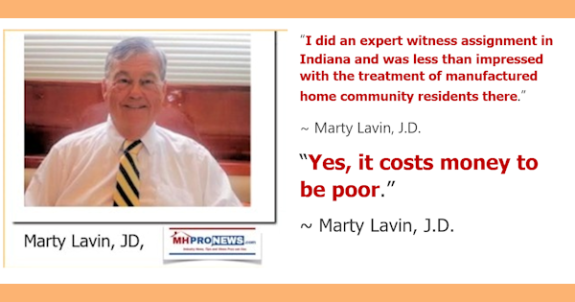
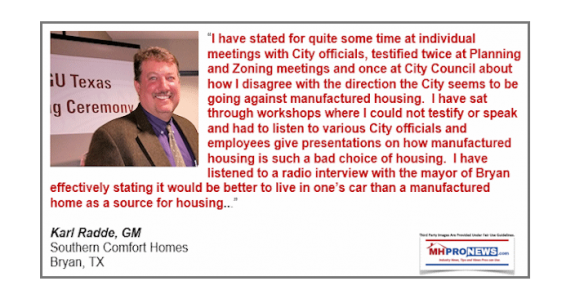
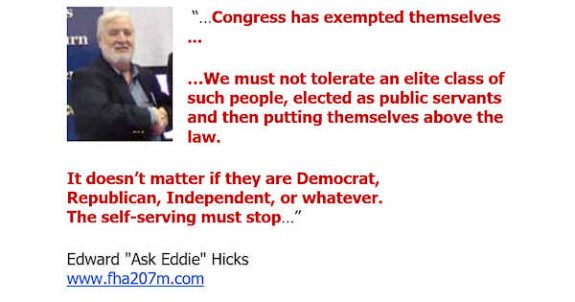
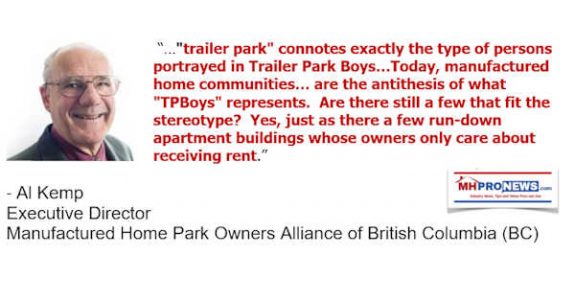

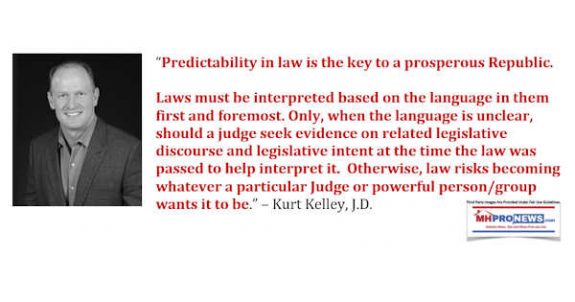
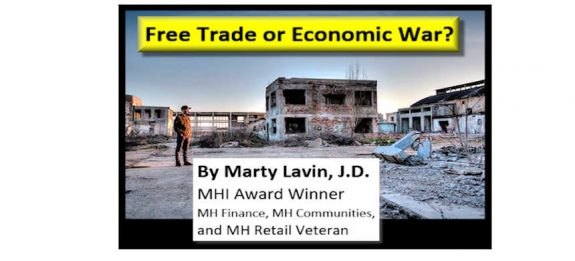
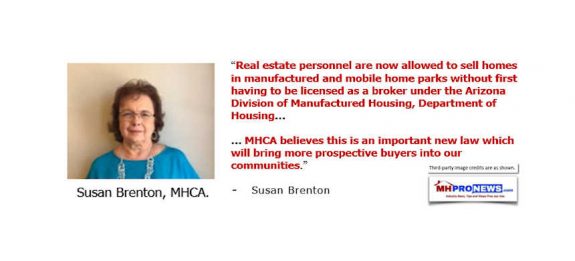
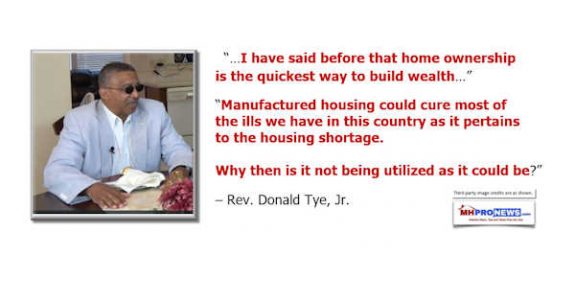
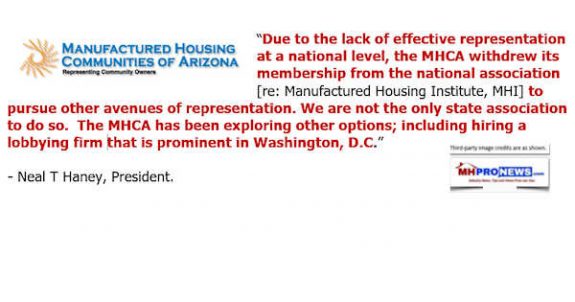
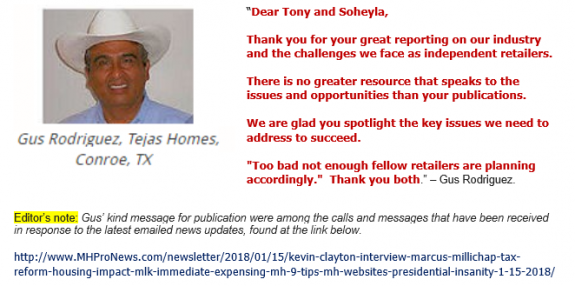
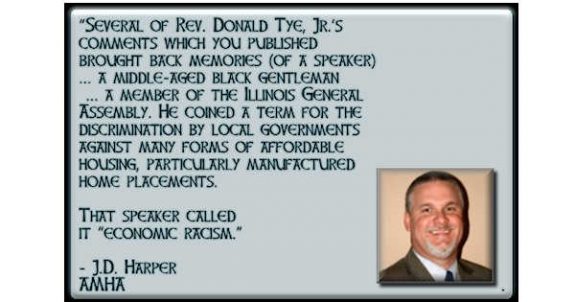
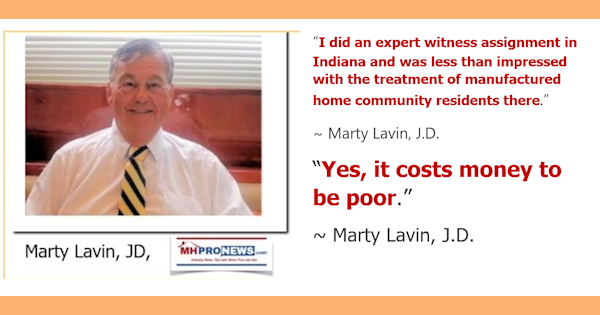
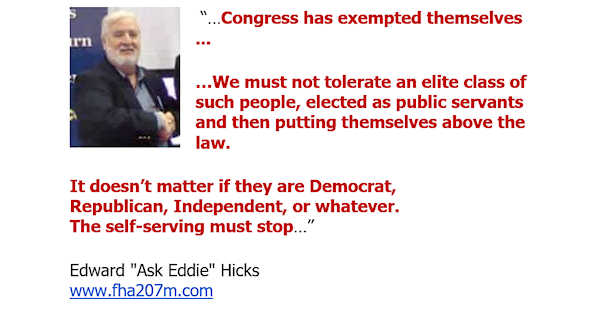
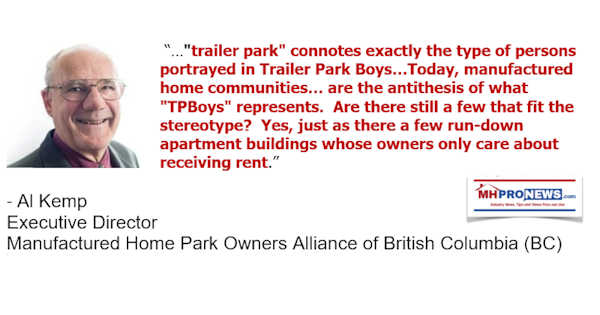
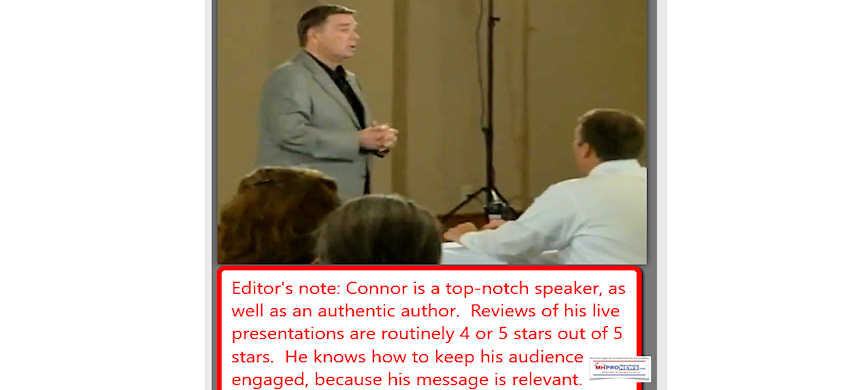
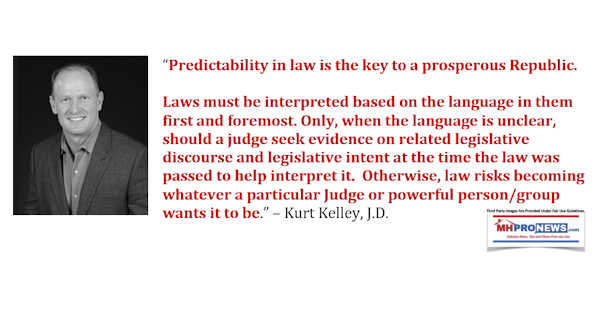

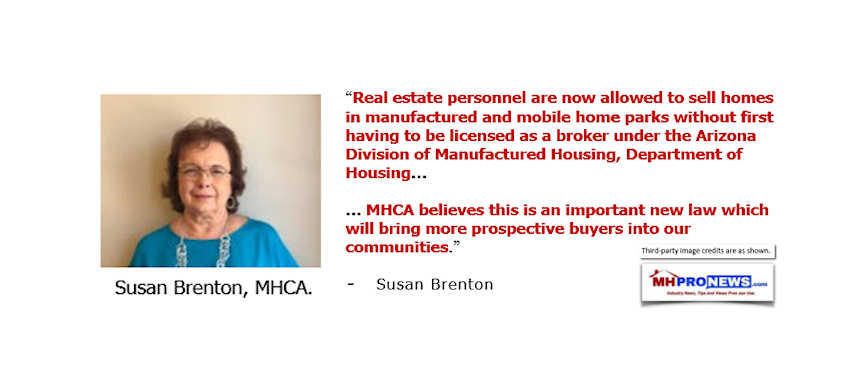
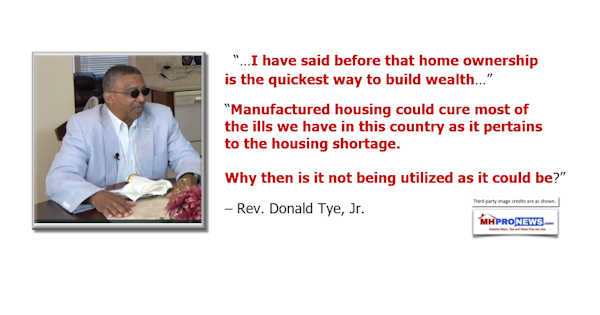
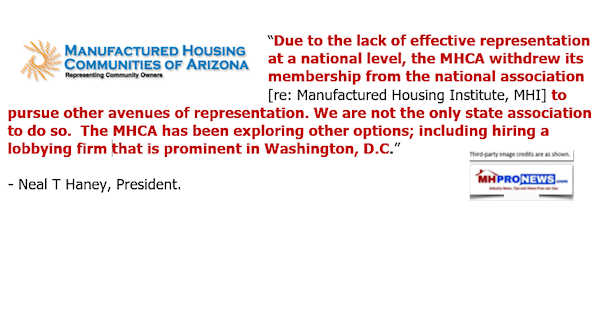
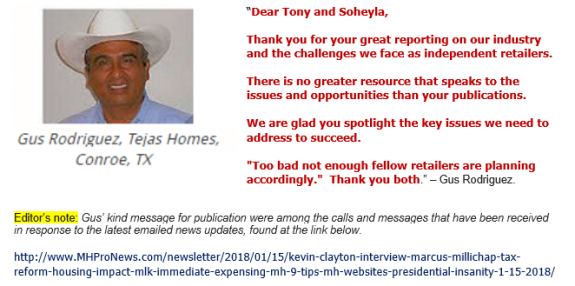
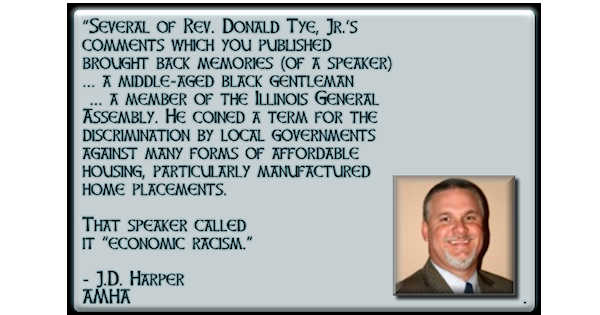
Karl Radde – TMHA, MHI, Southern Comfort Homes – Addressing Bryan City Leaders, Letter on Proposed Manufactured Home Ban
To All Concerned [Bryan City Officials, Others]: As the retail location referenced by Mr. Inderman, I would like to take a moment to address the …